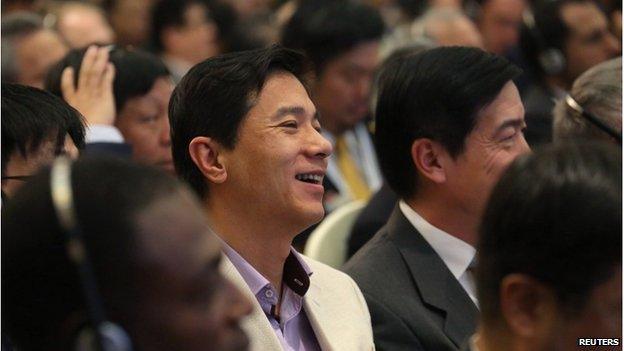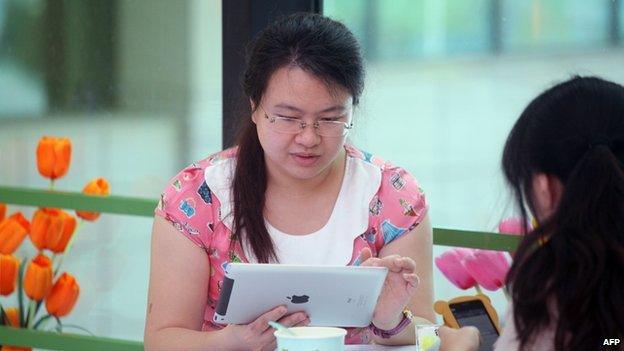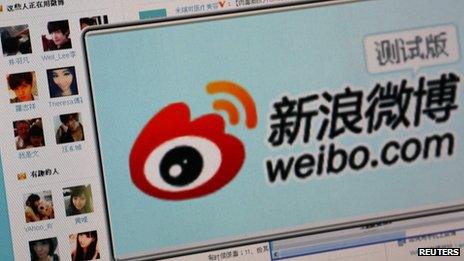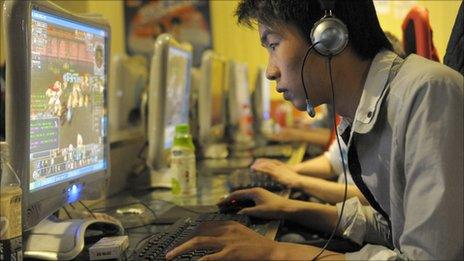China web conference opens amid internet freedom criticism
- Published
China's internet curbs - explained in 60 seconds
China has opened its first world internet conference with a call for more controls on cyberspace.
State internet information director Lu Wei told delegates in Wuzhen that China wanted a global internet governance system that was democratic and open.
But rights groups have voiced criticism of Beijing's internet practices.
China has a quarter of the world's internet users - more than 600 million. It also conducts a sophisticated censorship programme.
Observers say the World Internet Conference is part of China's aim to play a bigger role in the management of global cyberspace.
The conference will include sessions on global internet governance, cyber security and mobile internet, according to the organisers, the Cyberspace Administration of China, which is the country's top internet watchdog.
"We will strengthen communications and seek common ground while resolving differences to establish a multilateral, democratic and transparent international internet governance system," Lu Wei, director of China's state internet information office, told the conference.
"Join us in building up a peaceful, safe and open and co-operative cyberspace."
Along with Chinese technology firms, representatives from global companies including Apple, Amazon and Microsoft are attending.
The Chinese government routinely blocks thousands of foreign websites including news providers and social media sites such as Facebook and Twitter.

Conference delegates will be allowed access to sites such as Google and Facebook

News and social media sites including Facebook and Twitter are blocked in China
"Internet freedom is under attack by governments across the world. Now China appears eager to promote its own domestic internet rules as a model for global regulation," said William Nee, China researcher at Amnesty International in a statement ahead of the meeting.
"This should send a chill down the spine of anyone that values online freedom."
'Control and suppression'
At the conference Vice Premier Ma Kai, the highest-ranking Chinese official attending, said all countries should severely strike at internet terrorism activities and work together against cyber-attacks.
"All countries should strengthen co-operation and fully respect the different concerns that each nation has towards internet security," he said according to the AFP news agency.
Jack Ma, founder of e-commerce company Alibaba, told the conference: "The Chinese internet has influenced and changed Chinese society and the Chinese economy," AFP reports.
Chinese internet companies including Alibaba, Tencent and Baidu now compete against global giants such as Google and Amazon.
Earlier this week the so-called great firewall of China ramped up censorship, with authorities blocking a major internet hosting company and cloud service provider. The EdgeCast content delivery network reported that thousands of its websites and mobile apps had been partially blocked.
BBC China editor Carrie Gracie says armies of censors delete any content from Chinese citizens that propaganda chiefs object to, and courts sometimes jail those responsible.
"China's internet model is one of extreme control and suppression," said Mr Nee from Amnesty.
The attendees of the conference, which runs from the 19-21 November, will be allowed access to sites such as Google and Facebook, which are normally blocked in China.
China does ease its controls on the internet for high-profile events. Those attending the Asia-Pacific Economic Co-operation summit in Beijing earlier this month were given access to Facebook and Twitter as well.
- Published4 October 2013

- Published17 May 2013

- Published4 May 2011
